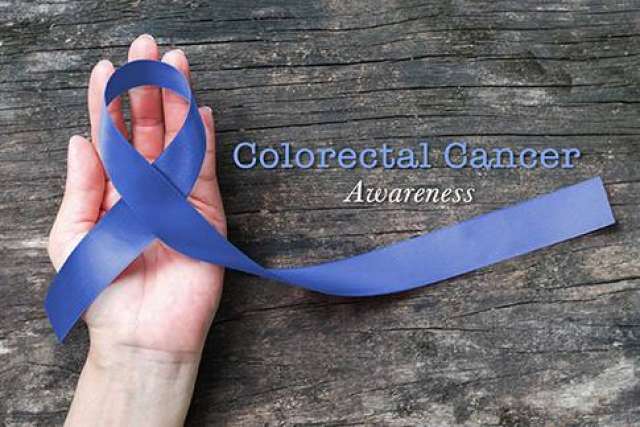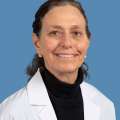New results from a major initiative on the quality of cancer care in the United States show that patients with a common type of colon cancer, especially older patients, often do not receive the aggressive treatment with chemotherapy that research shows is associated with better survival.
Led by researchers from UCLA and the RAND Corp., a nonprofit research organization, the study is among the first to track how findings from specialty research trials are applied in diverse practices in the community, where a wider variety of patients are treated. The results will appear in the March 17 edition of the Journal of the American Medical Association, which is devoted to developments in cancer care.
The study indicates that older patients, and to some extent younger ones, often do not receive recommended care based on clinical trial results. Trial results show that patients with stage 3 colon cancer — the stage at which cancer has spread to the lymph glands — have less cancer recurrence and better survival if they receive chemotherapy to "lock" them into a cancer-free state after surgical removal of the cancer. The studies also show that the adjuvant chemotherapy helps improve the outlook for patients in all age groups.
"Our team found that patients, especially older patients in community settings, received care that is different in important ways from what is recommended based on trials conducted in specialty research settings," said Dr. Katherine L. Kahn, professor of medicine in the division of general internal medicine and health services research at the David Geffen School of Medicine at UCLA. "Better understanding of why this happens is important to improving care for this group of patients."
The findings are from the Cancer Care Outcomes Research and Surveillance study, a multicenter project designed to assess care and outcomes for patients with newly diagnosed colorectal cancers. The project was designed to examine colon cancer care at diverse care centers across America.
"Because patients who participate in trials of new cancer treatments tend to be younger, healthier and less diverse socioeconomically than cancer patients in general, it is important to see how well new treatments are adopted in community settings, where there is a more diverse mix of patients," said Kahn, who is also a researcher at UCLA's Jonsson Comprehensive Cancer Center and a senior natural scientist at RAND.
The study included patients who spoke English, Spanish or Chinese.
After identifying 4,713 patients with colorectal cancer, the researchers analyzed the care received by 675 patients, including 202 people aged 75 and older, who had been diagnosed between 2003 and 2005 with stage 3 colon cancer and had undergone surgery to remove their tumors, as well as lymph nodes where cancer was detected.
Researchers found that adjuvant chemotherapy use across diverse settings differed from recommendations from clinical trials in four important ways:
- Despite evidence from trials showing improved outcomes for patients receiving adjuvant chemotherapy regardless of age, only 50 percent of patients aged 75 and older received adjuvant chemotherapy.
- Starting chemotherapy doses were lower than in standard regimens for 18 percent of patients.
- Older patients were less likely to receive the strongest chemotherapy, which has been shown in clinical trials to be most effective in improving survival: 14 percent of older patients, compared with 44 percent of younger patients, received this type of chemotherapy.
- In contrast to recommendations that a course of adjuvant chemotherapy last six months, only two-thirds of patients were still receiving adjuvant chemotherapy at six months: 40 percent of older patients and 25 percent of younger patients had discontinued treatment by five months.
While the study found that treatment in the community was not consistent with recommendations from clinical trials, researchers do not know if these differences will lead to poorer outcomes over time.
"Among treated patients, older patients did not experience more adverse outcomes in the year following the cancer diagnosis than younger patients, even after accounting for the additional illnesses that older patients are more likely to have," Kahn said.
Older colon cancer patients who received chemotherapy may have fared so well because those selected for treatment were stronger or because they were given less-intensive chemotherapy regimens, although the RAND-UCLA study also accounted for patients' burden of disease and for chemotherapy start date, strength and duration.
Researchers plan to follow up with the cancer patients to learn whether the lower doses and shorter courses of treatment in community practice settings, as compared with those in trials, achieve comparable outcomes, especially in older patients treated in diverse settings. In addition, they will examine whether the modified treatment regimens affect cancer recurrence and disease-free survival, as expected based on trial evidence.
"We use the chemotherapy to prevent recurrence and prolong disease-free survival," Kahn said. "At this time, we do not know whether these new regimens will be associated with the significantly lower rate of recurrence and improved survival that has been noted with use of adjuvant chemotherapy in trials."
Researchers say the study provides important insights into the many steps involved in translating science from research settings to community office settings, where doctors see most patients with colon cancer.
"It is important to see if new treatments supported by research can be used in community settings where there are diverse groups of patients, not just the young and strong ones that usually voluntary for research studies," Kahn said.
Patients in the cancer study were drawn from three settings: five population-based areas in Alabama, Iowa, Los Angeles County, Northern California and North Carolina; five integrated health care systems; and 15 Veterans Affairs hospitals. They were among the 10,061 patients and their caregivers who have taken part in the federally funded Cancer Care Outcomes Research and Surveillance study of colorectal and lung cancer.
The National Cancer Institute funded the study.
Co-authors are John L. Adams of the RAND Corp.; Dr. Jane C. Weeks, David P. Harrington and Dr. Deborah Schrag of the Dana-Farber Cancer Institute; Elizabeth A. Chrischilles of the University of Iowa; Dr. John Z. Ayanian of the Harvard University School of Medicine; Dr. Catarina I. Kiefe of the University of Massachusetts School of Medicine; Dr. Patricia A. Ganz of the David Geffen School of Medicine at UCLA and the UCLA School of Public Health; Dr. Nirmala Bhoopalam of the Edward Hines Jr. Veterans Affairs Hospital; Arnold L. Potosky of the Georgetown University School of Medicine; and Dr. Robert H. Fletcher of the University of North Carolina at Chapel Hill.
RAND Health, a division of the RAND Corp., is the nation's largest independent health policy research program, with a broad research portfolio that focuses on quality, costs and health services delivery, among other topics. RAND Health is the developer of COMPARE (Comprehensive Assessment of Reform Efforts), a one-of-a-kind online resource that provides objective analysis about national health care reform proposals.
The General Internal Medicine and Health Services Research Division in the department of medicine at the David Geffen School of Medicine at UCLA provides a unique interactive environment for collaborative efforts between health services researchers and clinical experts with experience in evidence-based work. The division's 100-plus clinicians and researchers are engaged in a wide variety of projects that examine issues related to access to care, quality of care, health measurement, physician education, clinical ethics and doctor-patient communication. Researchers in the division have close working relationships with economists, statisticians, social scientists and other specialists throughout UCLA and frequently collaborate with their counterparts at the RAND Corp. and the Charles Drew University of Medicine and Science.




